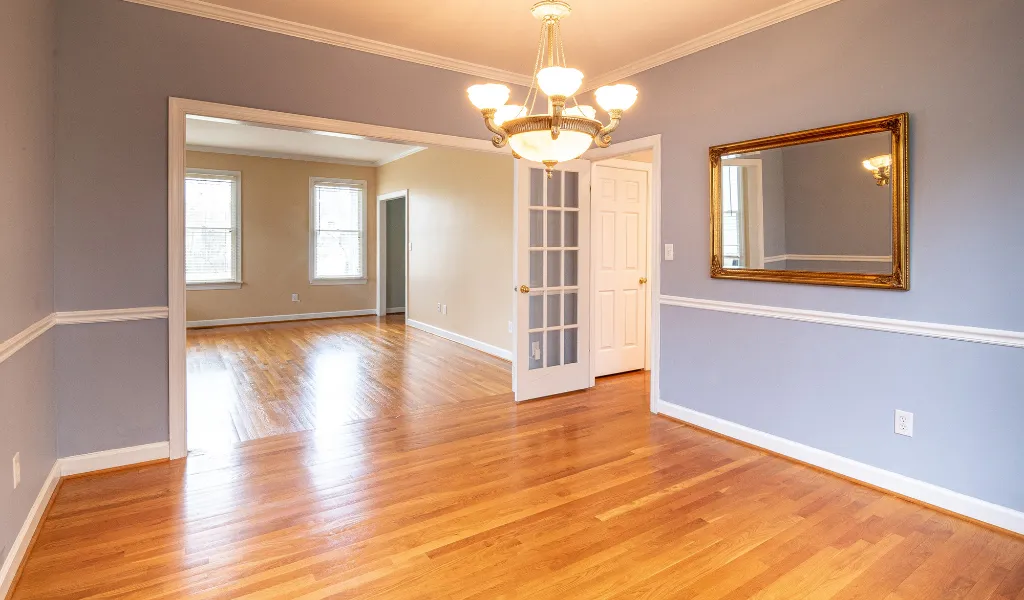When coming across different type of properties in the UK housing market, one must learn all the tax rules. It is important to know what the various exemptions are in each case. Take, for example, empty properties. Do you know how to avoid paying council tax on an empty property? If not, that is all right. This guide is here to explain all the ways you can rid yourself of the clutches of council tax.
Before we can jump into the complexity of council tax, we should discuss empty properties.
What is an Empty Property in the UK?
When is a property officially ‘vacant’? Well, this happens when no one has lived on the property for more than a month (thirty days). Not only this, but also if they remove all furniture and possessions. In such a case, a property is vacant.
Although, definition can vary from council to council. Make sure you talk to your local providers before arriving at a decision.
Why a property is vacant? There are plenty of reasons, including the following:
- You recently moved into a second house, but you haven’t sold it or have no plans to do so.
- They left the property unoccupied, and real estate investors are interested in buying it.
- The property hasn’t been re-rented despite the departure of the previous occupants.
- You’re holding off on house remodelling or interior design.

Is Empty the Same as Unoccupied?
There is a difference between a vacant property and an unoccupied property. In case of a vacant property, there are no belongings or furniture. On the other hand, unoccupied means no one is living there, but there are personal possessions and furniture. It is not completely empty.
When speaking of a vacant property, we are describing a property in which market buyers have no interest. Mostly property investors are looking for empty properties to renovate them. Therefore, it is important to understand how to avoid paying council tax on an empty property.
What is the Empty Homes Premium and How Does it Apply?
You must pay your local authorities to fund your local services monthly. This specific tax is council tax. The tenants or residents need to pay council tax if they occupy a property. When it comes to a vacant property, the rules change.
If a property is unoccupied and sufficiently unfurnished, then the council tax system in the UK (excluding Northern Ireland) charges higher rates of council tax. The purpose of council tax is to encourage people to occupy empty properties again.
In 2013, council tax came into existence in Scotland and England. Whereas, in Wales, it happened in 2017. Additionally, In England, there was an extension of the maximum extra charges in 2018.
The council can make a certain maximum charge by law. An example as such is if property is vacant for two years, then there is a possibility of a council bill that is 200% more than normal.
Normal council tax band of the property is the basis for the premium due.
How to Avoid Paying Council Tax on an Empty Property in the UK?
Mostly, council tax is applicable on empty properties. Nevertheless, there are exceptional situations for exemptions.
You can avoid paying council tax for a certain period if your property falls under one or more categories, including:
1. Properties that are Deceased or Probate
Under the tragic circumstance the property owner passes away, there is an exemption from council tax. This lasts up to six months of its vacancy. This exemption buys time for legal procedures. For example, probate can take place.
2. Houses that are Unhabitable
If the house in question is not liveable, then it is exempt from council tax. Structural issues, high-scale renovations, and extreme damage make a house unhabitable. Although, it is of utmost importance to provide evidence of the repairs to the council.
3. Properties that are Renovated or Newly Built
A property is not applicable to council tax if it is significantly renovated or newly built. This again lasts up to six months, like deceased properties. Within this time, you can place the property on the market or allow newcomers to move in.
4. Student Accommodation
If students live on the property, then it is exempt from council tax. Still, there are specific criteria. For example, all residents must enrol in an eligible course.
5. Accommodation that Relates to Work
Some properties are exempt from council tax if their main occupant is living there because of their job. An example is military barracks where members of the armed forces reside.
Additionally, keep in mind that you cannot avoid paying council tax on empty properties on a long-term basis. At the end of the agreed period, you must begin to pay the due tax. This clarifies how to avoid paying council tax on an empty property.

How to Receive a Council Tax Discount on Empty Properties?
Let’s suppose that your property does not fall under any of the above-mentioned categories. What can you do then? Well, you might qualify for a council tax discount. Your local council offers a discount in certain cases. It is usual for the first six months and is around 50% of the total council tax bill. Once the discount period ends, a full council tax charge applies.
Have a look at the following cases where you can qualify for council tax discount:
1. When a Property is a Holiday Home or Second Home
A reduced council tax rate is available for holiday homes or second properties that are vacant for most of the year. Local authorities offer a discount in specific cases.
2. If a Charity Owns the Property
In case a registered charity owns the property in question, then there is a possibility of exemption from council tax. Although certain criteria qualify the property for exemption. You can reach out to your local council to learn more.
3. In Case, a Property is an on Market for Sale or Awaiting New Tenants
If you are doing everything to rent out or sell your property, but it is still unoccupied, the option for discount exists for you. Make sure you meet the criteria.
4. When a Property is Going Through Heavy Repairs or Structural Work
You can avail a council tax discount if your property is going vacant because of renovations. Remember, it must remain unliveable during this time, and you need to provide evidence of the construction taking place.
It is best to contact your local council regarding the criteria for exemption and discount. Thus, you can find out how to avoid paying council tax on an empty property.
In What Cases, Do You Have to Pay the Premium?
Unfortunately, in rare scenarios, you may end up paying the premium on an empty property. Here are some examples of such circumstances:
Obtaining a Vacant Property with the Intention to Inhabit it.
In case you purchase a property that is vacant for two or more years, then a premium is due if you do not inhabit it immediately. In Scotland and Wales, it is only one year. However long the property is vacant for determines the liability for the premium. Once the ownership changes, the clock does not reset.
The premium only ceases to apply once you move in.
Buying an Empty Property with the Intention to Sell it.
If you buy a property that you cannot sell within two years of it being empty, you pay the premium. The same rule applies to a property that you inherit and cannot sell. Again, the period is different for Scotland and Wales. It is only one year. Yet, you can avoid the premium for one more year if you can show your attempts to sell the property. In England, this exemption is not available. Thus, you must understand how to avoid paying council tax on an empty property.
If you Avail an Unrelated Council Tax Exemption
You must pay an empty home premium two years after the property becomes vacant. In Scotland and Wales, the period is only one year. This is to clarify that it is not two years after the end of another council tax exemption.
Consider this example: you inherit a property from a relative who unfortunately passed away. You may receive a class F council tax exemption. This exemption is in relation to probate on the estate of the deceased. Once the exemption is no longer applicable, you must pay the premium. It is due two years after the property initially became vacant in England. Whereas, for Scotland and Wales, it is a period of one year.
Conclusion
Undoubtedly, it is possible to reduce your council tax bill. In fact, you can avoid paying council tax altogether on an empty property. Nevertheless, you must meet the criteria set by the local council. Hence, it is ideal to reach out to your local council to learn about the rules and regulations of empty homes premium.


